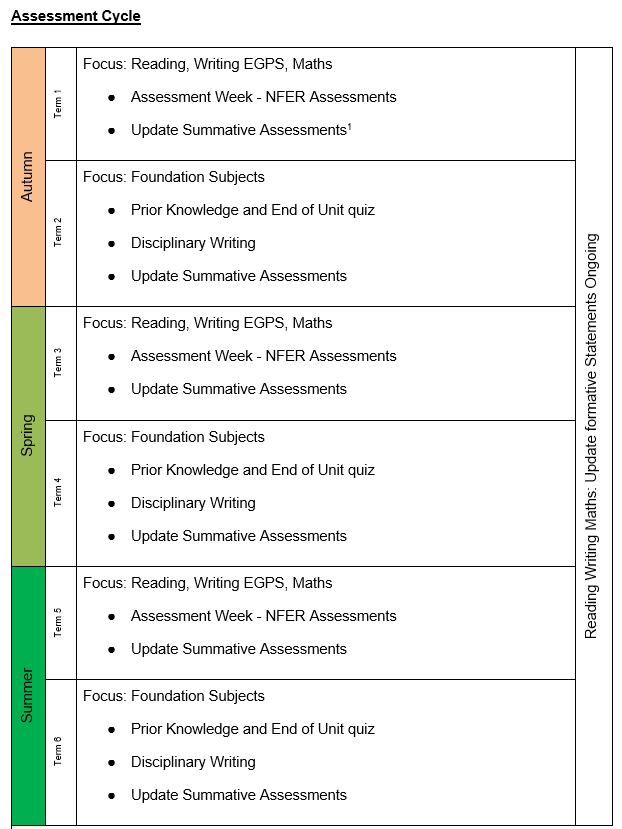Approaches to Assessment
Assessment plays a crucial role in teaching at Allfarthing, ensuring that children achieve their full potential.
What do we mean by assessment in school?
Assessment is the gathering of information about children’s learning, which is then reviewed with the purpose of enhancing learning and development.
- It creates a comprehensive picture of children’s learning and understanding by examining various evidence.
- The gathered information informs teaching and to make informed decisions about provisions for children.
- Regular and systematic assessments enable prompt adjustments in response to changes in children’s academic achievement.
What is 'achievement'?
Achievement is the word educators use to describe the combination of two factors:
- Attainment – which means how each child is doing in relation to their peers in the school.
- Progress –which reflects how well a child is doing in relation to how they have done previously.
Why do we assess children?
At Allfarthing Primary our assessment is ongoing. It informs our provision to support learners to make effective progress (know more and remember more). A Point in Time Assessment (PITA) is a popular non-linear method of tracking attainment and progress. Class teachers use Sonar tracker to monitor attainment and progress accurately.
![]()
Pupils’ achievements are compared against the expected levels of understanding and competencies relative to that ‘point in time’ (curriculum statements that have been taught). Summative tracking takes place at three points throughout the year (Autumn 1, Spring 1, and Summer 1). It is informed by NFER assessment outcomes and teacher assessment.
When a child's assessment falls below expectations, we take effective action to address this:
- We thoroughly investigate the reasons behind the assessment, engaging in discussions with the class team, the child, and the family. If there are any underlying factors contributing to the difficulty, we make necessary adjustments.
- We adapt our teaching approach for the particular child, a group of children, or the entire class if required.
- We implement additional provisions to enhance progress and/or attainment, ensuring that each child receives appropriate support.
How do we assess children’s learning?
Formative Assessment
Formative assessments evaluate pupils' progress during the learning process, rather than waiting until the end of a term, topic or test. This approach, also known as assessment for learning and is on of our Allfarthing absolutes.
Teacher Assessment
Teacher assessment of individual pupils involves observing them over time to evaluate the skill steps they demonstrate. This assessment is supported by tests and classroom learning, carried out on a termly basis.
Summative Assessment
Summative assessments are any method of evaluation performed at the end of a unit or term, allowing teachers to measure a students' understanding against standardised criteria. These are usually tests resulting in the pupil receiving a Test Score. Pupils scoring at least 100 will meet the expected standard on a test. However, the number of raw score marks needed to achieve a scaled score of 100 may vary each term due to changes in test difficulty.
Allfarthing Assessment Cycle










Our Twitter